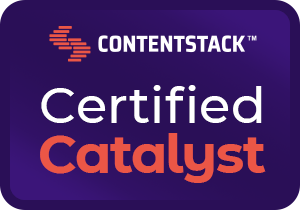Simple SEO Best Practice Guide
2023-02-17A Simple Definition of SEO:
SEO, or Search Engine Optimization, is the practice of optimizing your website to rank higher in search engine results pages (SERPs). The higher your website ranks, the more traffic you'll receive, which can translate to more leads and sales for your business.
To achieve higher rankings, there are two main areas to focus on: on-page SEO and off-page SEO. On-page SEO refers to the factors that you can control on your website, such as the content, title tags, and meta descriptions. Off-page SEO, on the other hand, refers to factors that are outside of your website's control, such as backlinks and social signals.
So, what are the current search engine rank factors for SEO best practices? Here are some of the most important factors to consider:
On-Page SEO Best Practices:
- Content: Content is king when it comes to SEO. The quality and relevance of your content are crucial to achieving higher rankings. Make sure your content is engaging, informative, and optimized for your target keywords. The content should also be unique and valuable to your readers.
- Title tags and meta descriptions: Title tags and meta descriptions are important on-page SEO factors that help search engines understand what your page is about. Make sure your title tags and meta descriptions accurately reflect the content on your page and include your target keywords.
- User experience: User experience is becoming an increasingly important factor in SEO. Google is placing more emphasis on factors such as page speed, mobile responsiveness, and ease of navigation. Make sure your website is easy to use and provides a positive user experience.
Off-Page SEO Best Practices:
- Backlinks: Backlinks are links from other websites that point to your website. They are one of the most important off-page SEO factors and can greatly impact your website's rankings. Make sure you have high-quality backlinks from reputable websites in your industry.
- Social signals: Social signals, such as likes, shares, and comments, can also impact your website's rankings. They are an indication of your website's popularity and relevance. Make sure you have an active social media presence and encourage engagement from your followers.
- Local SEO: Local SEO is important if you have a brick-and-mortar business. Make sure your website is optimized for local keywords and that you have a Google My Business listing. This will help you rank higher in local search results and attract more customers to your business.
So, what are the three most valuable things that an SEO can do to boost performance in SEO? Here they are:
- Focus on quality content: As mentioned earlier, content is king when it comes to SEO. Make sure you have high-quality, unique content that is optimized for your target keywords. This will help you rank higher in search results and attract more traffic to your website.
- Build high-quality backlinks: Backlinks are a crucial off-page SEO factor. Make sure you have high-quality backlinks from reputable websites in your industry. This will help you establish your website's authority and credibility and improve your rankings.
- Monitor your website's performance: Monitoring your website's performance is important to identify areas for improvement. Use tools such as Google Analytics and Google Search Console to track your website's traffic, rankings, and other important metrics. This will help you identify areas for improvement and make necessary changes to improve your website's performance.
In conclusion, SEO is a complex and ever-changing field. To achieve higher rankings in search engine results pages, it's important to focus on both on-page and off-page rank factors. Taking a holistic approach to improving organic performance always yields the best results.
Lastly, remember, SEO is a marathon, not a sprint.
Written by ChatGPT





